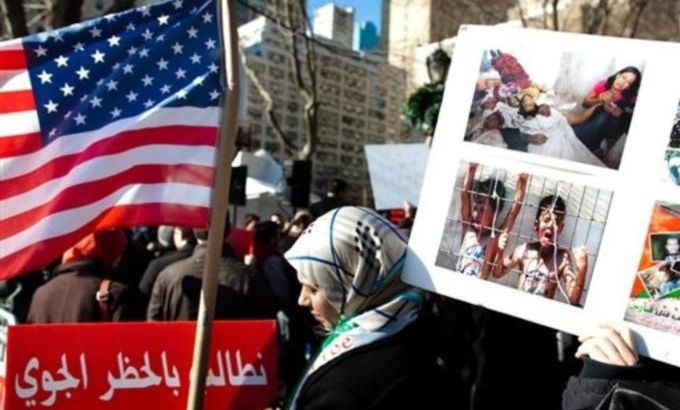
Syria and the US: The complicity of silence
As President Barack Obama begins his second term, will the US continue to give mixed messages about Syria?
Throughout the Cold War, US meddling in Syria poisoned the well of US-Syria relations.
Then, after 1990, there was co-operation on matters of mutual benefit, such as a response to Iraq’s invasion of Kuwait and – a fact often conveniently overlooked – the so-called war on terror.
As the US has sought new ways to shift regional alliances at arm’s length, a locally-instigated movement has achieved what no outside power could – it has presented the first significant challenge to the Baathist regime. Over the course of almost two years, non-violent popular protest has mutated into bloody conflict.
|
“There is no strategy. With regard to Syria, I think the US is riding a tiger.“ – Juan Cole, professor of Middle East History at University of Michigan |
With little appetite in Washington for direct intervention, the US is sending mixed messages.
In some ways, Washington’s overt – and covert – support for the rebels is playing into President Bashar al-Assad’s hands, allowing him to claim he is fighting foreign intervention rather than domestic dissent, while also giving him space to fight back as brutally as he wants with no immediate threat of military involvement by the US, NATO, or other western powers.
The same forces which rushed into Libya – and just recently into Mali – are transforming Syria into another proxy killing field. But this time Washington’s silence contributes to the destruction.
Armed fighters have made substantial advances and dealt heavy casualties to government forces, seizing equipment and ammunition. But decisive military victory remains far from their grasp, if at all possible. And, complicating matters further, one of the best-organised, highly experienced, well equipped and most effective of the armed factions – Jabhat al-Nusra – has recently been declared a terrorist organisation by the Obama administration.
|
“We take pride and dignity when they call us terrorists. America was the first sponsor of global terrorism themselves.“ – Abu Hasan, Jabhat al-Nusra Commander |
So what comes next in this confused and bitter calculus of confrontation? As President Obama begins his second term, will the US continue to give mixed messages?
Empire looks at the history of the US relationship with Syria and the current state of the armed uprising with interviewees: Richard Murphy, the former US ambassador to Syria; Douglas Little, a history professor at Clark University; Hasan Abu Hanya, an expert on Islamic movements; Michael Scheuer, the former chief of the CIA bin Laden Unit; and Abu Hasan, a Jabhat al-Nusra commander in Syria.
We explore who is right and who is wrong, and what is – or should be – the Obama policy towards Syria, with our guests: Bassam Haddad, the director of the Middle East studies programme at George Mason University, who is also editor of the online magazine Jadaliyya, and author of several books, including his latest Business Networks in Syria: The Political Economy of Authoritarian Resilience; David Pollock, a senior fellow at the Washington Institute for Near East Policy; Juan Cole, a professor of Middle East history at the University of Michigan, and author of several books including his most recent Engaging the Muslim World; and Stephen Starr, a journalist and author of Revolt in Syria: Eyewitness to the Uprising.
| Timeline |
Click here for more Empire. |
